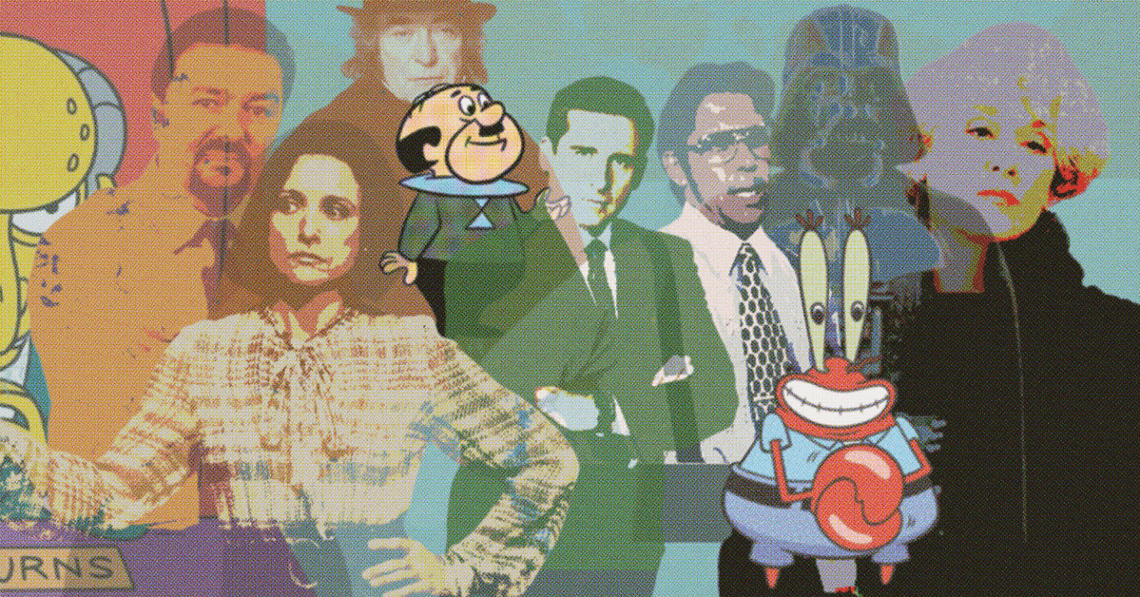CCI’s editorial director, Jennifer L. Gaskin, looks back on her spotty history as a manager and wonders if conventional wisdom is all that wise.
People don’t quit jobs; they quit bosses. This is surely not the first time you’ve read or heard that, and maybe it’s something you believe deeply. Best I can tell, the phrase originated around 1999 in a book written by two Gallup researchers, “First, Break All the Rules: What The World’s Greatest Managers Do Differently.”
Wherever the phrase was born, it’s long since become conventional wisdom, with everything from broad-based surveys to TikToks to LinkedIn posts all trying to reinforce this allegedly profound idea. And it’s not hard to see why it would catch on in a society where instead of broad, systemic changes to save the environment, we yell at people to recycle. Put in a business context: If turnover rates are high, making a change at manager is a hell of a lot easier than a roof-to-basement culture revolution.
Still, having a growth mindset means I take to heart research that says, for example, one in two people have left a job to get away from a manager, according to Gallup. I’ve managed many people in my career; did half of them quit because of me?
I started this column with a headline in mind — “Confessions of a Bad Boss” — but as I researched more, read surveys, talked to experts and caught up with people I’ve bossed and who’ve bossed me, the reality for me (and other people who worry they’re bad bosses) is much more complex.
‘We had to be that way’
My longest stretch of managing other people was a seven-year stint on a newspaper copy desk, where I led a staff of editors, technicians and designers. I didn’t start there as a manager, but only a couple of years into my tenure, I found myself with a promotion offer, which I promptly accepted without really thinking about whether I wanted to lead — or was even capable of doing so.
And this is quite common; a UK survey from 2023 found that 82% of people who enter management positions have had no formal leadership training.
In that role, my former boss told me over lunch a couple of weeks ago, I got the reputation as a tough person who led by example and set a standard of excellence that I expected those on my team to follow. Except I didn’t do that. I mean, if that’s the type of boss I was, it was accidental, and I didn’t choose to be any type of way. I took the job because I wanted to earn more and also because it stoked my ego.
“Too often what we do — I’m in HR, I do it myself — is we design these career paths and the only way for someone to get ahead and make more money is to make them a manager,” said author Debra Corey, whose new book, “Bad Bosses Ruin Lives,” came out in December. “So, I think the companies that get it are the ones who create dual career paths.”
But I had another reputation, at that job and others, as being unapproachable — and this was well-earned. I was relentless in trying to make sure every word in the paper was accurate, fair and necessary, that designs were modern and engaging and that the paper rolled off the press at the correct hour. Feedback was immediate and to-the-point. Feelings were really not taken into consideration, and interruptions were not met with understanding.
“But we had to be that way,” said my ex-editor, an intimidatingly capable woman who, after retiring from journalism, has devoted her life to helping resettle Afghan refugees, finding them housing, jobs and transportation.
“There was no other choice. Right?” she asked me — and herself, too, acknowledging that I learned a great deal of my management style from her. Exacting, blunt, meticulous. And difficult to please.
Corey’s book labels this management style the “Unappreciator.” Corey and her co-author/husband, Ken Corey, researched workplaces to understand bad bosses; the Unappreciator is the most common type.
“That’s the one who isn’t grateful, isn’t thankful; you don’t even feel like they see all the things that you do,” she said.
Indeed, I did not have time to sit down with people and talk about their career path or give them feedback in a private, structured setting. We worked really hard and really fast, often dealing with controversial or even traumatizing news events — some of these events are seared into my memory, and I haven’t worked there in more than a decade. Our goal wasn’t to thrive; it was simply to survive the night and come back to do it all again the next day.
Treating Stakeholders as the Humans They Are
3 major takeaways from ‘Ethics & Compliance for Humans’
Read moreDid I ruin people’s lives?
To say the least, I didn’t lead with gratitude, but the truth is I was often overly harsh. And I am sure, because I asked, that the effects on the people I managed were very real. One of my former direct reports said she thought often of leaving and was regularly stressed out.
And she’s not alone; a Workforce Institute survey showed 69% of people said their manager influenced their mental health, more than doctors (51%) or therapists (41%) — and equal to the effect of a spouse or partner (69%).
Much of Corey’s writing has been influenced by her previous work experiences, including one where she was on eggshells due to a bad boss.
“I was constantly looking over my shoulder, wondering when I was going to be chewed out, when I was gonna be embarrassed,” she said. “I was just a bundle of nerves, and I’m a really strong person. So, you know, I can imagine people who are already dealing with some mental challenges — I created this term after interviewing people, ‘Bad Boss Stress Disorder’ — how after you’ve been with a bad boss, you have the side effects for months and years to follow.”
As for my former direct report, she assures me her life wasn’t ruined by being under my leadership.
“When I was working there, I had a ton of personal problems that were going on, and I wasn’t able to separate those sorts of things out,” she said. “It might have felt like you were ruining my life, but you weren’t. You were just doing your job, too.”
That feels a little bit like being let off the hook, but the truth seems to be that the nature of the work and the organization had more to do with people being unhappy than my behavior as an individual. In the case of this former direct report, she was not the ideal fit — and there was no work-around for that.
“Were there really hard days where it was just like, ‘I can’t do this anymore?’ Yep. I would say probably once a week, I thought about quitting,” she said. “But part of that had to do with me not feeling like I was getting it, feeling like I was not doing a good job because I was good at the editing part; I was not good at the design part.”
Great for one person, bad for another
I didn’t talk to every person I ever managed for this column, but I know some of them will have stories like that one and others won’t. I doubt many of them have gauzy, warm memories of my steady leadership in their lives, but I know that my management style was a better fit for some than it was for others. And this is natural, Corey says.
“You can be a great boss to one person, a good boss to someone and a bad boss to someone,” Corey said. “It’s like anything in life: Celebrate the ones that you’re great with and for the other people, try to figure out what you can do to turn around those situations to figure out what’s going to make you a great boss for one person. And have honest conversations with your people. Find out why you’re not a great boss for those people.”
I didn’t ruin this person’s life, and I don’t know that I believe bad bosses ruin lives or even that people quit bosses rather than jobs. A Facebook analysis published in the Harvard Business Review found that outside of cartoonishly evil or obviously incompetent managers, people quit the work, not the manager. I’ve never quit a job for one single reason, and I know I’m not alone.
And in any event, isn’t a bad manager a failure of the entire organization? In a scenario in which someone is so constitutionally unfit for management, the organization fails when it promotes them, and in a scenario where all or most managers are toxic, that’s the organization’s fault, too.
What could I have changed to make my former charge’s life better? As a middle manager, not much. I couldn’t change her schedule, pay her more money or change her day-to-day work functions. I should have been a kinder, more patient person — and I told her as much — but a toxic environment is rarely ever that way because of one individual.
My stint at the newspaper ended in 2012 and many things have changed about the workplace since then. Workers have a different relationship with work than they did then, and many companies see their place in the world as more than just offering paychecks. But change is slow, Corey warns, and good role models are in short supply.
“People are doing a better job of training more of the leadership aspects of being a boss, so that’s good,” she said. “People are talking about well-being, mental health, engagement, so we’re talking about the right things. I think the actions need to change, then, to support it.”




 Jennifer L. Gaskin is editorial director of Corporate Compliance Insights. A newsroom-forged journalist, she began her career in community newspapers. Her first assignment was covering a county council meeting where the main agenda item was whether the clerk’s office needed a new printer (it did). Starting with her early days at small local papers, Jennifer has worked as a reporter, photographer, copy editor, page designer, manager and more. She joined the staff of Corporate Compliance Insights in 2021.
Jennifer L. Gaskin is editorial director of Corporate Compliance Insights. A newsroom-forged journalist, she began her career in community newspapers. Her first assignment was covering a county council meeting where the main agenda item was whether the clerk’s office needed a new printer (it did). Starting with her early days at small local papers, Jennifer has worked as a reporter, photographer, copy editor, page designer, manager and more. She joined the staff of Corporate Compliance Insights in 2021.







